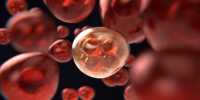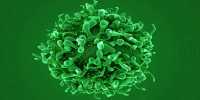What you consume shapes your preferences for what you want to eat next. According to a study conducted on fruit flies at the University of California, Riverside. The findings, which were published in the Journal of Neuroscience, provide a deeper knowledge of the neurophysiological plasticity of the taste system in flies.
Animals need a balanced diet with the right proportions of different nutrients to stay healthy. Macronutrients such as carbs and proteins are important; in fact, an imbalance in these nutrients can be harmful to health. To survive, flies require macronutrients such as carbohydrates and amino acids. They detect these nutrients and begin feeding via the gustatory system, the sensory system responsible for taste perception.
Anindya Ganguly and Manali Dey, lead by Anupama Dahanukar, fed adult flies several diets in their lab experiments: a balanced diet, a sugar-reduced and protein-enriched diet, and a sugar-enriched and protein-depleted diet. They ensured that the total calorie content of all three meals was identical, and they evaluated the flies everyday for a week to look for changes in food choice and taste sensitivity.
We discovered that feeding altered the taste preferences of the flies. When fed a diet high in protein but low in carbs, the flies’ taste sensitivity changed, and they established a compensatory behavioral response in the short term to eat more carbohydrates and less protein in attempt to reestablish a balanced diet.
Professor Anupama Dahanukar
Diet, according to the researchers, alters dopamine and insulin signaling in the brain, which impacts the flies’ peripheral sensory response, which is made up of neurons directly involved in detecting external stimuli. This response then has an impact on what the flies eat next.
“We discovered that feeding altered the taste preferences of the flies,” said Dahanukar, an associate professor of molecular, cell, and systems biology. “When fed a diet high in protein but low in carbs, the flies’ taste sensitivity changed, and they established a compensatory behavioral response in the short term to eat more carbohydrates and less protein in attempt to reestablish a balanced diet.”
This could imply that conserved signaling pathways could play a role in mounting similar diet-induced alterations in taste in other animals, including humans. Individuals on a high sugar diet may have a dulling of sugar taste, making sweets less appealing in the short term. Similarly, a low protein diet would improve umami flavor, boosting the value of protein-rich meals to be taken later.

Diet, according to the researchers, alters dopamine and insulin signaling in the brain, which impacts the flies’ peripheral sensory response, which is made up of neurons directly involved in detecting external stimuli. This response then has an impact on what the flies eat next.
Interestingly, when the unbalanced diet flies were switched back to a balanced diet, their taste sensitivity recovered to baseline levels, indicating that changes in taste preference are reversible. Individuals on a high sugar diet may have a dulling of sugar taste, making sweets less appealing in the short term. Similarly, a low protein diet would improve umami flavor, boosting the value of protein-rich meals to be taken later.
“Changes in gene expression appear to be involved,” said Ganguly, a former UC Riverside graduate student who is now a postdoctoral researcher at UC Santa Barbara. “We notice these alterations in flies after only a day or two of food treatment.”
Interestingly, when the unbalanced diet flies were switched back to a balanced diet, their taste sensitivity recovered to baseline levels, indicating that changes in taste preference are reversible.
“Our data reveals that dietary imbalances impact your taste preferences in a way that helps you at least in the short term,” said Dey, a graduate student in Dahanukar’s lab. “They assist you in changing your taste so that you choose foods that are beneficial to you, foods that will help you regain metabolic homeostasis.”
However, Dahanukar cautioned that the long-term consequences on consumption may be more complex. Other scientists’ studies, for example, found that while flies fed on a high sugar diet saw their sugar sensitivity drop in the short run, flies kept on that diet devoured more of that food in the long term.













